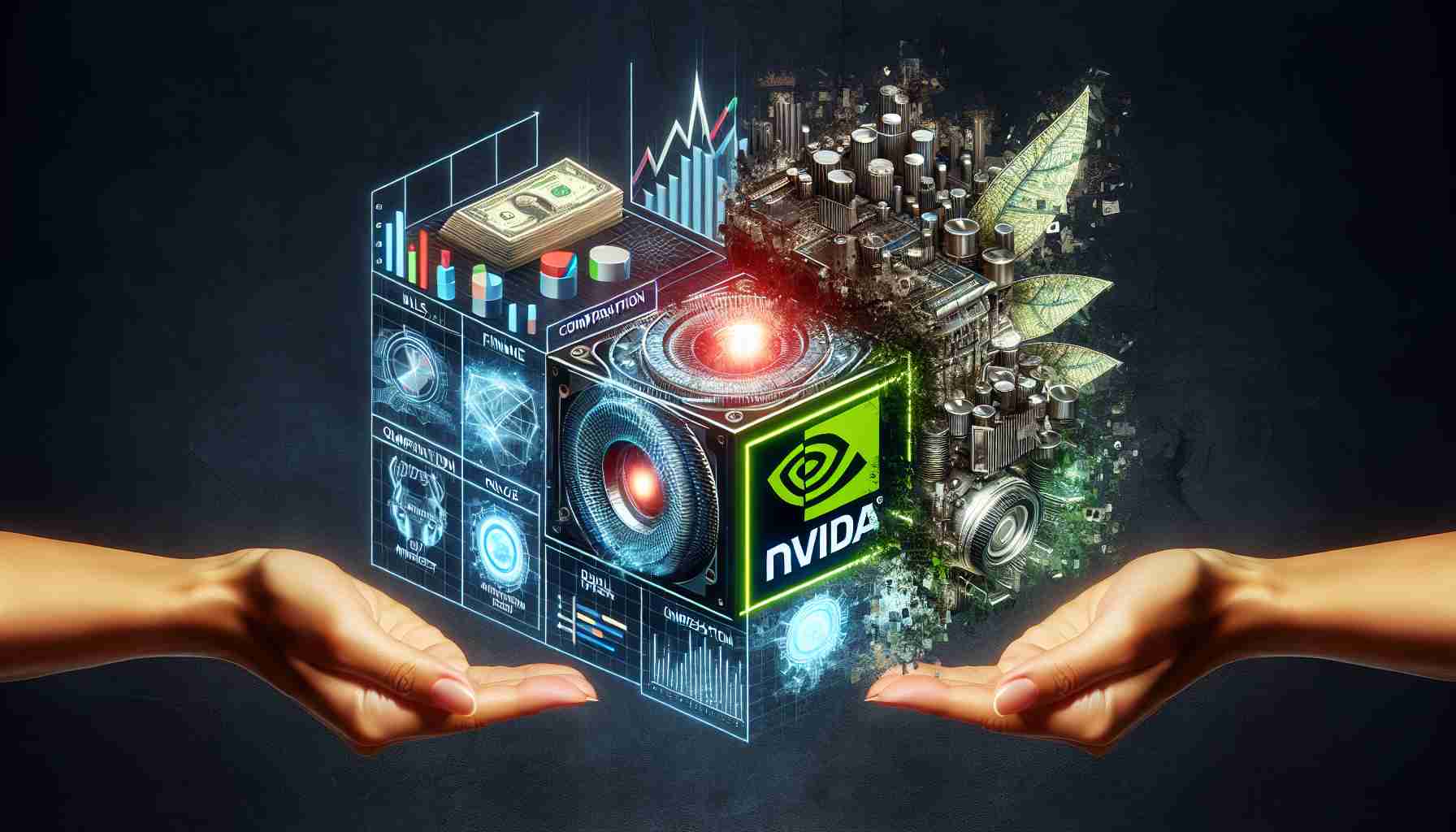Understanding the Surge in Quantum Stocks
In the financial arena, quantum computing has emerged as a hot topic, especially following Alphabet’s breakthrough with its quantum chip, Willow. This innovation is claimed to drastically minimize errors and execute complex computations at an astonishing speed, outperforming existing supercomputers by astronomical margins.
As a result, shares of various quantum firms saw significant increases. Smaller companies in the field, including D-Wave Quantum and Rigetti Computing, also enjoyed spikes, drawing attention to the sector’s potential.
Cautionary Voices Amidst Enthusiasm
However, this excitement faced scrutiny when influential CEOs from top tech companies cautioned that functional quantum computing is still decades away. Commenting on the technology’s practicality, industry leaders expressed skepticism about its immediate usefulness, suggesting that advancements in AI might arrive sooner.
Navigating the Investment Landscape
While quantum technology continues to entice investors, many companies in this sphere report minimal revenues. In contrast, AI stocks promise proven returns with existing market value.
Among top investment recommendations are Micron Technology, which has seen enormous growth due to AI demands, and TSMC, a titan in chip manufacturing that continues to expand in the advanced chip market. Both companies present a more immediate investment opportunity compared to the uncertain trajectory of quantum computing stocks.
Beyond the Hype: The Broader Implications of Quantum Computing
As quantum computing gains momentum, its ripple effects reach far beyond mere stock fluctuations. The transition to quantum technology could redefine various sectors, igniting innovation and reshaping the global economy. Countries are already investing billions into quantum research, recognizing it as a key component of national competitiveness. In 2021, the U.S. allocated $1.2 billion for the National Quantum Initiative, while the European Union plans to invest more than €1 billion over the next decade in quantum technologies.
Culturally, the rise of quantum computing signifies a pivotal shift in how we understand and harness data. By potentially creating solutions for complex problems— from drug discovery to climate modeling— quantum technologies promise advancements that could change everyday life. This evolution invites a paradigm shift, sparking public discourse on ethical considerations surrounding technology deployment, data privacy, and equitable access to innovations.
Moreover, the environmental implications are substantial. Quantum computing could enhance energy efficiency in data processing and optimization tasks, addressing some urgent climate challenges. Future projections indicate that as quantum technologies mature, they may significantly reduce carbon footprints across industries, supporting global sustainability goals.
As we look ahead, the long-term significance of quantum computing is profound. While immediate returns on investment remain uncertain, the foundational work being laid today could usher in a new era of computational capabilities, fundamentally altering the landscape of technology and its societal impact.
Quantum Stocks: The Next Big Investment or Just Hype?
Understanding the Surge in Quantum Stocks
Quantum computing is rapidly becoming a focal point in the investment world, particularly accelerated by Alphabet’s landmark achievement with its quantum chip, Willow. This breakthrough is heralded for its ability to significantly reduce error rates and execute sophisticated computations with unmatched speed, potentially eclipsing traditional supercomputing capabilities.
The Quantum Market Landscape
The excitement surrounding quantum computing has led to considerable stock price increases for various companies within the sector. Notable players like D-Wave Quantum and Rigetti Computing have observed significant surges in their stock prices, highlighting the growing market interest and potential of quantum technologies.
Pros and Cons of Investing in Quantum Stocks
Pros:
– High Potential Returns: With the quantum computing market expected to expand significantly, early investments could lead to considerable financial rewards.
– Innovative Technology: Companies in the quantum space are at the forefront of technological advancements, which can lead to breakthroughs in various fields, including cryptography, materials science, and pharmaceuticals.
Cons:
– Long Development Timeline: Many industry experts warn that commercially viable quantum computing could still be decades away. This uncertainty can be a deterrent for risk-averse investors.
– Limited Revenue: A substantial number of quantum firms currently report minimal revenues, making the investment landscape highly speculative compared to more established sectors like artificial intelligence.
Industry Insights and Trends
The excitement surrounding quantum computing reflects broader trends in the technology sector. As investment flows into quantum technologies, there is an increasing focus on the potential for applications in industries ranging from healthcare to finance. However, experts recommend a cautious approach, advising that investors also consider established technologies alongside emerging ones, particularly artificial intelligence, which offers more immediate and tangible market value.
Comparison with Other Technology Investments
When evaluating where to invest, the landscape of AI stocks provides a stark contrast to quantum computing. Companies like Micron Technology have experienced significant growth due to the surging demand for AI solutions, which showcases a clearer path to profitability and established market presence. Similarly, TSMC (Taiwan Semiconductor Manufacturing Company) remains a leader in chip manufacturing, consistently innovating in the cutting-edge chip sector, making it a safer investment compared to quantum firms.
Future Predictions for Quantum Computing
Analysts predict a gradual maturation of the quantum computing sector over the next decade. As research progresses and technology becomes more refined, there will likely be a clearer picture of viable applications and investment opportunities. Until then, investors should balance their portfolios with both high-risk quantum stocks and stable, revenue-generating companies in AI and semiconductor manufacturing.
Conclusion: Where to Focus Your Investments
Investors intrigued by the quantum computing revolution should remain vigilant about market developments and technological advancements. While the allure of high returns is tempting, understanding the risks and the time frames for viable quantum applications is crucial. By diversifying investments and considering the established giants of technology, investors can navigate this exciting yet unpredictable landscape more effectively.
For more insights into the latest stock trends and technology investments, visit Forbes.
















